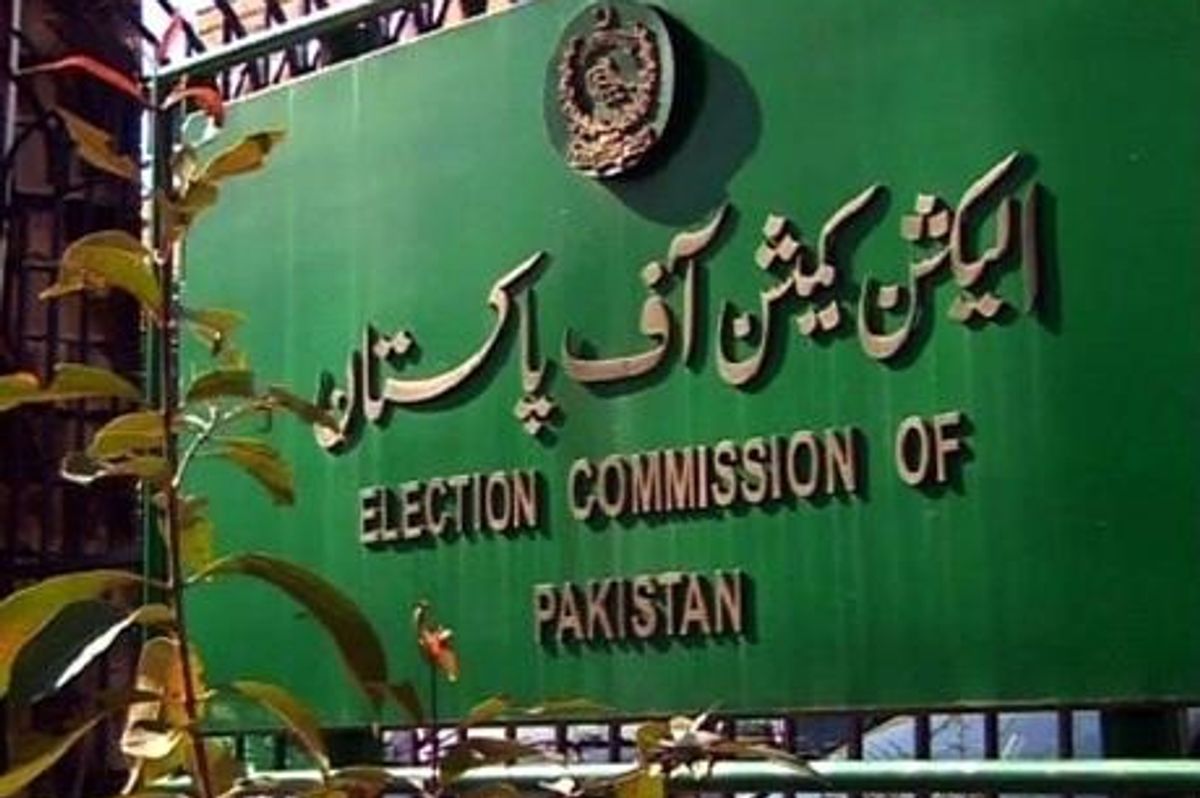Pakistan govt’s inaction on ECP appointments fuels political tensions
PM Shehbaz Sharif’s govt has yet to start the process of appointing a new election commission, raising concerns over its neutrality

Javed Hussain
Correspondent
I have almost 20 years of experience in print, radio, and TV media. I started my career with "Daily Jang" after which I got the opportunity to work in FM 103, Radio Pakistan, News One, Ab Tak News, Dawn News TV, Dunya News, 92 News and regional channels Rohi TV, Apna Channel and Sach TV where I worked and gained experience in different areas of all three mediums. My journey from reporting to news anchor in these organisations was excellent. Now, I am working as a correspondent with Nukta in Islamabad, where I get the opportunity of in-depth journalism and storytelling while I am now covering parliamentary affairs, politics, and technology.

A sign board of Election Commission of Pakistan (ECP).
AFP/File
The Pakistani government has not yet initiated the appointment process for the Election Commission of Pakistan (ECP) despite the completion of Chief Election Commissioner (CEC) Sikandar Sultan Raja’s term on Jan. 26.
The delay has raised questions about the role of the ECP, particularly in the Feb. 8, 2024, general elections. Under the Constitution, Prime Minister Shehbaz Sharif must consult with the opposition leader in the National Assembly to begin the appointment process. However, no discussions have been held so far.
Following a constitutional amendment under Article 215, Raja and two ECP members—Sindh’s Nisar Durrani and Balochistan’s Shah Muhammad Jatoi—continue to serve. However, Clause 4 of Article 215 still requires the government to fill the vacancies within 45 days.
Government ministers argue there is no urgency, stating that the election commission officials are performing their duties well. Ministers have largely avoided discussing the issue publicly, reinforcing speculation that the government intends to retain the current officeholders.
Meanwhile, opposition leaders are demanding action. National Assembly Opposition Leader Omar Ayub and Senate Opposition Leader Shibli Faraz have written to the National Assembly Speaker and Senate Chairman, urging the formation of a parliamentary committee to oversee the appointments.
- YouTubewww.youtube.com
Ayub accused the CEC and two ECP members of rigging the Feb. 8 elections, calling for their removal under Article 6 of the Constitution. “I wrote to the Speaker on Jan. 15, asking for a parliamentary committee, but received no response,” Ayub told Nukta. “The government wants to keep Raja and the members in office so they can continue receiving salaries and benefits.”
Ayub called for their immediate resignation and demanded fresh elections under a reformed ECP. “For Pakistan to have free and fair elections, we need an independent election commission,” he said.
Barrister Aqeel Malik, advisor to the Ministry of Law and Justice and a member of the government’s legal team, told Nukta that opposition leader Omar Ayub acted prematurely by writing to the Speaker for a parliamentary committee even before the Chief Election Commissioner’s term ended. He said Articles 213 to 215 of the Constitution outline the appointment process clearly.
“The Prime Minister will soon begin consultations with the opposition leader, as required by the Constitution,” Malik said. “The procedure for appointing the Chief Election Commissioner ensures continuity of work.”
He added that the government would complete the process strictly in line with constitutional and legal requirements, ruling out any action beyond the framework of the law.







Comments
See what people are discussing